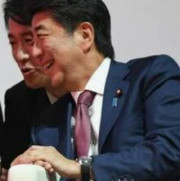No doubts that our collective welfare to a great extent depends on our energy wealth. In this sense the world demand for oil and gas in the 15-20-year-long prospect makes us happier than the expectations of victory over the corruption. The current international crisis has only accelerated the selection of the main energy supply vector (Europe or China), and simultaneously facilitated the prospects of “the gas OPEC”. This project implying close coordination between Russia, Iran and Central Asian countries (about 70 per cent of produced natural gas) may become a factor of geopolitical transformation of the global economic relationships.
On the other hand, the predominating energy export to China and future gas consortium are reviewed at least in the 15-year-long prospects while currently 60 per cent of revenues to our budget come from energy supplies to Western Europe. So, the economic consequences of the events in the summer-autumn of 2008 are firstly preconditioned by the global alignment of forces and ambitions rather than the Georgian crisis. Secondly, these consequences are not predictable, and in this sense it is too early to congratulate the winner. Thirdly, for the time being they will have impact mainly on Russia and Western Europe not affecting the USA.
Of course, our economic decisions will depend almost by 100 per cent upon the reaction of the West to the Caucasus events. In this situation the reaction of the USA moves to the forefront in spite of the up-to-the-minute economic logic, at that the outcome of the presidential campaign makes no odds. Under the first scenario, the Georgian events may be jointly interpreted by the Republicans and Democrats at a bonk to all Americans who are eager at last to be quits with “the Ayatollahs” for holding the Washington diplomats for 444 days as hostages in Tehran, plus for the failed effort to liberate them. In this case, on the part of Washington we would expect a frontal offensive (final dismantling of the military-treaty-system, hasty NATO enlargement, deployment of new military bases at our borders, etc.) in combination with the economic pressing (efforts to make a man-made energy price collapse, restrictions on import) and information campaigns in the spirit of the Cold War (expulsion from G8, boycott of the Sochi Olympics, human-right-defending hysteria, etc.)
In response we would most probably cut the supply route to Afghanistan via Russia (about 20 per cent of transit), intensify our ties with Byelorussia, Venezuela and Iran, but first of all the Central Asian countries. Ukraine and Azerbaijan would expect nothing pacifying. Against this background we would promote contraposition of the New World to the Old one and fist of all to Turkey and China as well as to our friendly Islamic states. In so doing, Americans themselves would acknowledge that they have received “a Caucasus bonk” after the Iranian one in 1979. At least it would not strengthen “color democracies”. We may predict that in the United States itself contradictions between “the revenge-seeking gunmakers” and other not less ”wolfish” agents of the actual global market would aggravate. All this would not soften the mortgage credit crisis threatening to America as a sword of Damocles too.
Under the second scenario, the victory of the Republican candidate would be perceived by him as a compensation for the “morale damage” caused to the country due to the defeat of its ally, Saakashvili. Moreover, it is the Georgian crisis that enabled McCain to get lacking votes (did it caused the crisis?). The more questionable victory of the Democrats would enable them to write off “the reputation losses” to “the Republican bungling piece of work”. In this case nobody would get stuck on “the Pan-American defeat”. Of course, it would be taken into account in Moscow too. And the measures directed against us would be limited with the information and political sphere, which we got used to.
Under any scenario we would expect prevailing policy of force against the background of further erosion of the international law. The Georgian crisis after the Kosovo and Iraqi ones confirmed that the big policy in made not on the parquet floor but on the battlefield. The winner will engage an army of diplomats and lawyers to justify the victory. I also see no need to dispute a tired maxim – the strong men make bandits of themselves while the weak men behave like prostitutes.
On the other hand, the wave of separatism that floods the world (more than 200 actual and potential flashpoints), is not resisted at all. Nobody sees the "end-to-end" derivation of the terror from the separatism and its militant antipode - the globalism. The today’s double standards entirely justify the approach of “the Middle Ages”: “I am right because the (“federal or separatist”) memory of forefathers is with me”. An aphoristic concept of “civilized” peacekeeping: "History is nothing else, but "his-story", is confirmed neither by the will of politicians nor by the reputation of lawyers themselves. Economists also fail to help both of them.
In this situation the strengthening of the Russian federalism will remain unofficial “National Project 1”. It is still in progress basing on the respective expenditures from the sole ”stabilizing fund”. In the militarized world we will hardly survive as the pacifists. Let’s recompose ourselves ex contrario: the end of the Cold War in the early 90s brought the Hot War to our home.









